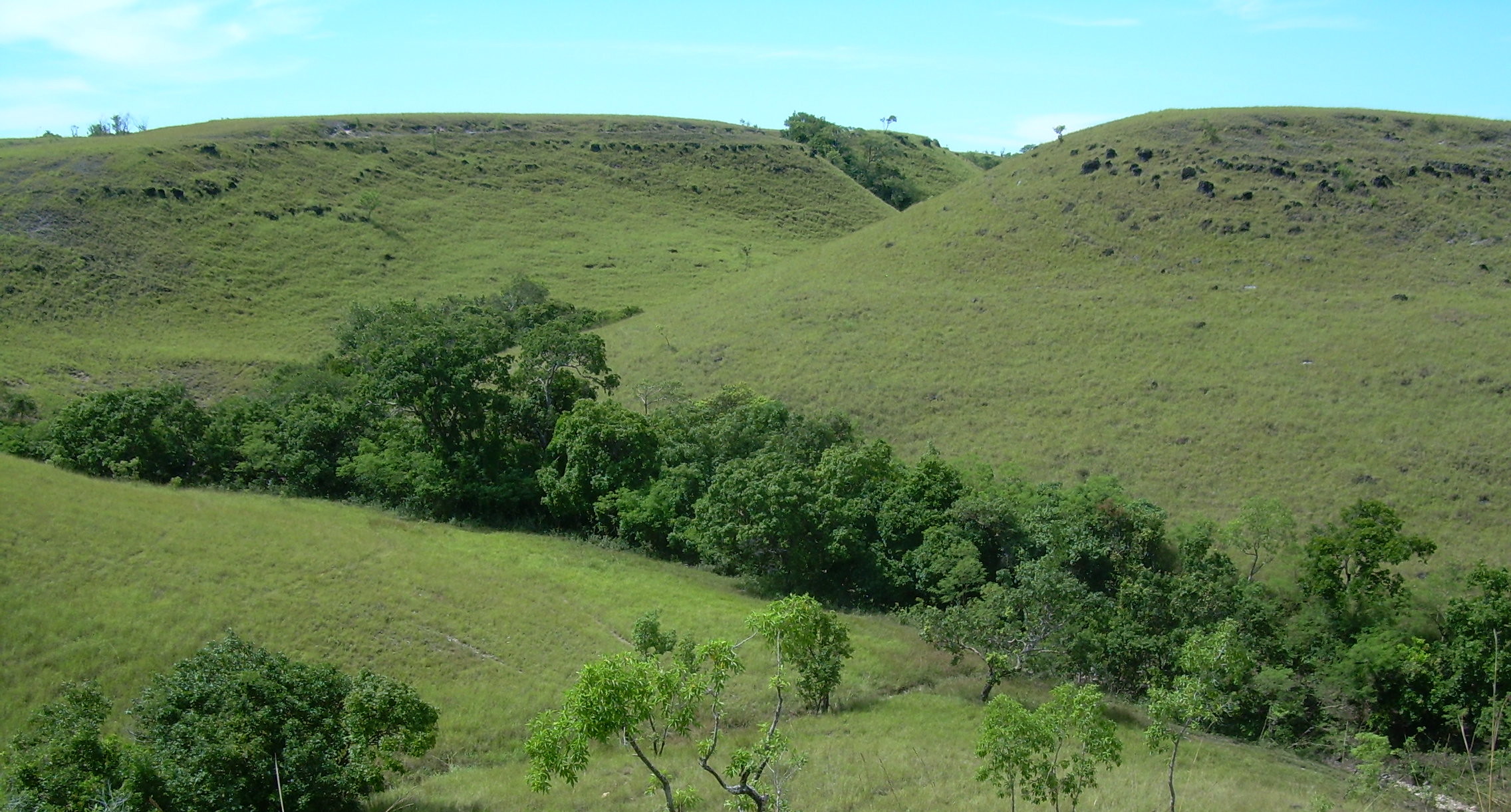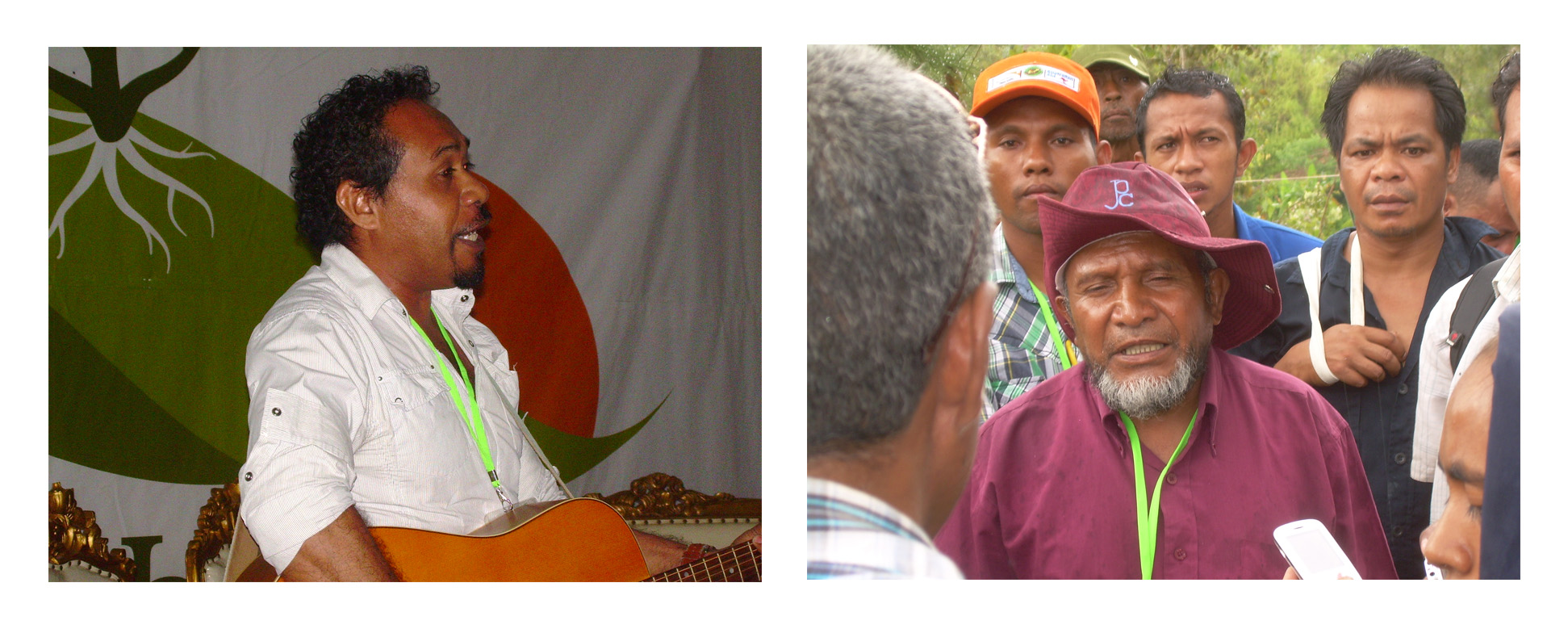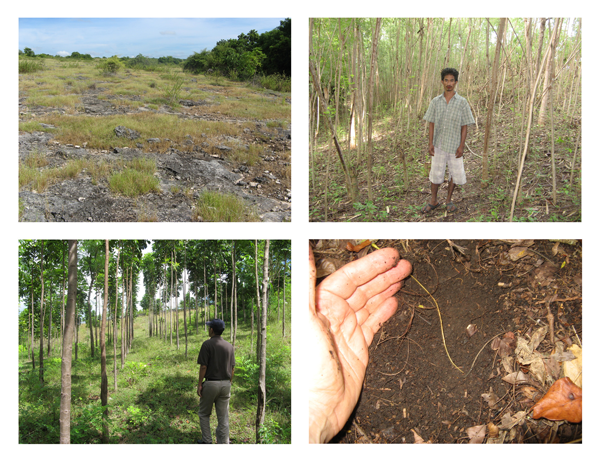
“FMNR Revolution” sweeps through Timor-Leste and East Sumba, Indonesia
June 2, 2014
In April 2014, over 200 participants came together in Dili for the country’s (and the region’s) first national Farmer-Managed Natural Regeneration (FMNR) conference. This is an extraordinary achievement for a little city of just 200,000 people and testament to great organisation by World Vision’s Timor-Leste office.
Participants included farmers, forestry officers, government officials, community leaders, students and staff from the major universities, NGOs, UN organisations, aid agencies, the diplomatic community, World Vision staff from grass roots, district, national and overseas offices, and speakers from Timor-Leste, Indonesia and Australia.
They came to discuss the way forward for environmental restoration in Timor-Leste, and the role FMNR could play in restoring the landscape and bringing food security and economic development to rural communities.
In just three years, in the district of Aileu, about two hours inland from the capital, FMNR has influenced the mindset of how communities use the land.
In the past, the forests of this steep, mountainous country, have been cut down and burnt causing massive landslides which in turn have led to erosion and flooding problems. According to Timor-Leste’s Director of Forestry, Manuel Mendes, at the present rate of deforestation the country will have no forest at all in 60 years’ time. Not a nice message for Timor-Leste’s children to take on board.
With every rain, tons of topsoil are washed away affecting roads, villages, farmlands and the waterways – not to mention people’s livelihoods.
But now, the Aileu communities led by visionary farmer Manuel da Silva and World Vision staff, have used the FMNR mantra to stop burning and ‘looting’ their precious environment, and instead ‘manage’ it for themselves, their communities and future generations.

In return, nature is paying them back in bucket loads: the forests have started to regenerate, farmers have planted crops such as coffee, cassava and cinnamon under the regenerated trees and as a consequence are reaping the food, environmental, social and economic benefits that FMNR brings.
Sharing his experience of FMNR in East Africa, Director for World Vision Pacific Timor-Leste, Myles Harrison told the conference, “FMNR is the most efficient and effective process for restoring the land to a place where it is part of the solution not the problem. It is now a significant part of the World Vision East Africa program and East African governments are moving to massively scale up and replicate FMNR across wide areas.” The really good news story is that Timor-Leste is heading in the same direction as East Africa. World Vision staff are determined that this tiny nation will become the regional centre of excellence for FMNR and the conference participants resolved to create country-wide task forces to spread FMNR across all rural districts.
One of the conference participants was World Vision’s manager for East Sumba (one of the most easterly Islands of the Indonesian archipelago). Amsal Ginting was a doctor by profession, and on weekends still practices at the local hospital in Waingapu, the main town. If ever I’ve met a man of constant good humour, who sees hope in all that surrounds him, and who is the world’s most consummate networker, surely it’s Amsal.
Amsal leads a dedicated team that has a wonderful relationship with the communities that are part of the INFOCUS project, which aims to increase food security through a sustainable livelihood and resource management system.
The project concentrates on land and water management (in which FMNR plays a leading role), community resilience through such things as savings groups, and a strengthening of the political environment to improve food security.

INFOCUS was initiated in response to two years of acute malnutrition in World Vision’s Area Development Programs and chronic ongoing food insecurity issues. Forest cover over the past 80 years has reduced from 60 percent of the total land area to only eight percent today and this has had a very detrimental impact on soil erosion, water supply, fodder and food production, and income generating opportunities.
Enter FMNR. Through the INFOCUS program, communities have developed a number of FMNR plots and complementary stands of high-value timber. The transformation of the topsoil in the FMNR plots is nothing short of miraculous and demonstrates the island’s enormous agricultural potential.
In just three years the project has overseen the establishment of 100,000 high value timber trees and over a million indigenous and naturalised trees have been regenerated through FMNR. As a consequence, water tables are rising, soil fertility is improving and hope for a brighter future is being restored.
I travelled to Timor-Leste and East Sumba with two other indefatigable characters, Tony Rinaudo and his wife, Liz. Positive results on the ground have given cause for a follow-up visit in August to hold planning and training workshops in conjunction with the World Agroforestry Centre and the UNDP to help take East Sumba’s agricultural potential to the next stage.
The challenges to be addressed are to link the communities’ new found ability to grow trees with economic opportunities, and to scale up the work island-wide, triggering much needed environmental healing. Stay tuned!

Rob Francis is Project Manager – Farmer Managed Natural Regeneration within the Food Secuirty and Climate Change unit at World Vision Australia
